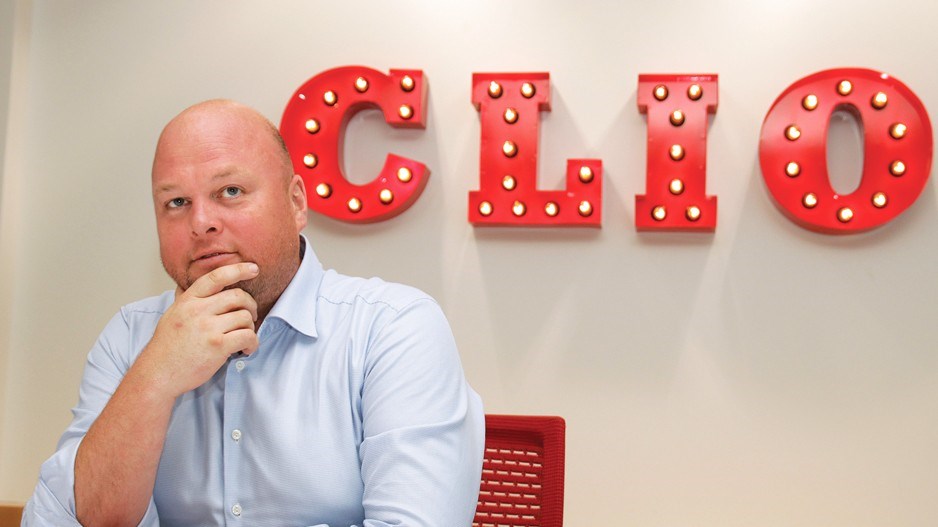More change is afoot for legaltech firm Themis Solutions Inc. (Clio) — this time within the top leadership ranks — after already raising US$110 million from investors earlier this year to reach a US$1.6-billion valuation.
Burnaby’s Clio, known for developing software that helps lawyers reduce administrative tasks, revealed Monday the addition of three new executives to its C-suite this month.
San Francisco-based Ronnie Gurion, the former general manager and global head of Uber For Business at Uber Technologies Inc. (NYSE:UBER), replaces George Psiharis as chief operating officer. Psiharis remains a “prominent shareholder” of Clio, according to the company.
Two long-time executives are being promoted to the C-suite, with vice-president of marketing Reagan Attle taking on the role of Clio’s chief marketing officer and vice-president of technology Jonathan Watson taking on the role of Clio’s chief technology officer.
The trio isn’t the only addition to the C-suite this year.
Clio also tapped Sarah Bettencourt, formerly of Montreal-based Lightspeed Commerce Inc. (TSX:LSPD), as its chief people officer back in June.
CEO Jack Newton said the expansion of the C-suite, from four top leaders to six this month, was needed as Clio prepares for its next stage of growth.
Speaking about Gurion and Bettencourt, the CEO said “they're both bringing experience working in companies that are an order of magnitude or more in terms of Clio’s revenue scale as well as our people scale.
“So I think a lot about how do these individuals help us see around corners? How do they help us navigate the challenges of this scaling journey that we're about to go through and how can they bring some of the expertise they've acquired?”
Attle’s and Watson’s respective promotions to CMO and CTO are a nod to trust in the executives and Clio’s commitment to developing internal talent, according to Newton.
The CMO and CTO positions are a first for Clio.
After hitting unicorn status earlier this year, Newton told BIV the plan was to expand its 575-person workforce to 825 by year’s end.
The company, which has offices in Toronto, Calgary and Dublin, is close to hitting that target with 750 workers on its roster as of November. About 1,000 workers are expected to be on Clio’s payroll by spring 2022.
Following April's capital injection, Clio went on to acquire tech firms Calendar Rules and Lawyaw in July and September, respectively.
“We've seen a lot of success in the acquisitions we've made this year so far. There are certainly going to be more acquisitions on the horizon,” Newton said.
“It's very much a product-driven and product-led acquisition strategy, where if we see the ability to acquire products that help us accelerate our product roadmap, help us accelerate our ability to realize our vision to transform the legal experience for all, that's the kind of acquisition we're going to be really excited about.”
Clio revamped one of its other services last month, launching its own payments processing service to allow lawyers to bill clients through the company's own platform. Clio previously relied on a third party for processing lawyer-client payments.
“To deliver the kind of experience that we want for our customers and to transform the payments experience for legal, we needed to own that experience top to bottom,” Newton said, adding he expects the payments service to become an important revenue line down the road.
“If you look to the most successful technology companies in the world — and Apple's [Inc. (Nasdaq:AAPL)] a great example — they get so much of their success from fully controlling and owning the hardware and software stack for their devices.”
Following what the CEO described as a “pregnant pause” in activity when the pandemic first paralyzed much of the global economy last year, he said lawyers soon began turning their attention to figuring out how to run their firms virtually.
“Starting around mid-April [2020], we saw an unbelievable surge in demand — what I described as a mass evacuation to the cloud for the legal industry,” Newton told BIV last spring, adding law firms had to rush to rethink processes previously rooted in face-to-face interactions and reliance on technology tied to physical offices.
“Next to staffing costs, real estate lease costs are the single … largest piece of overhead for a law firm. So in well one fell swoop, COVID-19 and technology have eliminated one of the most significant structural costs embedded in the existing costs of legal services.”
He said this rapid change in the industry has the potential to reduce the costs of legal services for consumers and open the door to more inclusive access to justice.
“We realize that technology is not just a tool that can improve the experience for the privileged few that can access legal services today,” Newton said.
“We realize technology can really help improve the accessibility of legal services, to improve the discoverability of legal services and, most importantly, reduce the cost of legal services and make them more affordable.”
Clio’s last big capital raise prior to this year came in 2019, when it landed US$250 million in a Series D funding round led by American equity firms TCV and JMI Equity.
“Frankly, when Ryan Gauvreau and I founded Clio back in 2008 we had no clue that Clio would turn into the kind of success story that it has been over the course of the last 13 years. We had really humble ambitions initially and hoped that Clio would be successful enough to pay us both a reasonable salary,” Newton said this month.
“What certainly happened over the last 13 years is the scale of our ambitions has grown with every year that Clio has grown. And as we've seen more success and as we've seen more impact, our ambition to have even broader impact has only grown over that time.”




